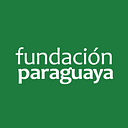The Will to Win. Using Contests to Escape Poverty?
It was November, siesta time, and really hot in Asuncion. We were close to the Paraguay River when Miriam welcomed us with her beautiful smile, lovely dimples and perfect new set of teeth. I couldn’t believe it was the same person I’d seen just a few months before, amongst the participants of “My Happy Smile” contest, with only a few teeth.
Miriam and her colleagues of the Oñondivepa Committee (comunal bank) won the 2016 edition of “My Happy Smile”. Fundacion Paraguaya runs this and 14 other contests in Paraguay and Tanzania to “activate” families to address the poverty indicators on their Poverty Stoplight. The Poverty Stoplight is a measurement tool and methodology that allows families to self-diagnose their level of poverty and create plans to escape it. The results are astounding.
There are several philosophies behind these contests. On the one hand, we use the Positive Influence Theory that predicts that all human behavior can be modified if a person answers “yes” to: “ is it worth it” and “can I do it”. We also use Octalysis, a gamification tool based on eight components that keep people interested and motivated in any activity.
What motivates Mrs. Gloria to haul sand from the Nemby creek, under the blistering Paraguayan sun to help build a bathroom for her neighbor, Mrs. Mirta? Easy: A prize. Both ladies, along with 18 others are part of the Mystic Rose committee and have signed up for the “My Bathroom, My Kitchen, My Pride” contest. The committee selects one member and photographs their precarious bathroom or kitchen, then commits to work together on improving their colleagues kitchen or bathroom and posts a picture of the improvements on Facebook. The image with the most “likes” wins the contest. The winning committee wins a communal savings account.
With the stimulus of a prize, the visibility they earn, the specific and tangible challenge and the opportunity to post a “before” and “after” image, the group becomes a volcano of resources and creates internal motivation to transform their realities. In 2016, 12,000 women making up 700 committees generated resources in the value of $200,000 to improve bathrooms and kitchens. The investment in prizes was $7,000.
“Is it worth it” and “Can I do it” can be achieved through six types of influences. The contests allows for all six types of influences to change the behavior of these ladies. It is possible that Mrs. Gloria is not motivated to improve her bathroom (individual motivation) and perhaps she doesn’t have the skills required to do it (individual ability). Through the contest, and through peer pressure (social motivation) and the skills provided by the group, a friendly contractor neighbor and cousin of one of the ladies (social ability), motivated by a prize (structural motivation) and structural changes as well as financing and agreements with local businesses (structural ability) catalyzed behavioral changes so that the bathrooms and kitchens are improved.
What do Villa Ygatimi, a small village 300km away from Asuncion, Paraguay and Morogoro, 200km away from Dar es Salaam, Tanzania have in common? Walking through their sandy roads, we can see teenagers worried about getting copies of savings accounts slips, finding alternative means of income and getting involved in the construction of better restrooms and kitchens for their homes. Organized in teams, they compete in the Poverty Stoplight Olympics, where the “game” consists of applying the Poverty Stoplight in their homes and demonstrating how they move indicators from yellow (poverty) and red (extreme poverty) to green (not poverty). The prize? A trip to Brazilian beaches.
The game has all the components suggested by Octalysis to achieve enthusiasm in youth, and push their parents to improve their standard of living. For them, it has significant meaning, because they are chosen to participate in the contest and are contributing to improving the lives of their families. The contest has challenges with an assigned point system, which includes the “development and realization”. The creativity of each team is emphasized as they must try new things, create video content, songs, signs etc.
In addition to this, teams compete against other schools based on survey results, creating a sense of “Property and possession”. The final results are published via social media in order to create “social influence”. Time limits and phases are established to provide “scarcity and impatience” and “unpredictability” is created through unexpected challenges that allow teams to make-up lost points. “Loss” is present not only in not achieving the prize, but in being kicked out of the group, if members fail to achieve the assigned tasks.
From the “Entrepreneurs Sing” contest (promoting cultural values) to the “I prevent Cancer” contest (breast cancer prevention), the 15 contests organized by Fundacion Paraguaya have achieved a lot in changing the attitude of the participants to address indicators that improve their quality of life, with principles that are simple and fun. These contests have even changed the behavior in students and educators in the “School Enterprise Challenge”, where over 3,000 public schools develop productive educational courses that teach entrepreneurism and money-making skills that are then invested in improving the infrastructure of the schools.
These contests change lives for good. As Miriam, winner of “My Happy Smile” says in her video, “ I had no teeth. If you don’t have teeth you can’t smile. My life changed with this challenge because now I have a smile. I feel very pretty”.
Written by Luis Fernando Sanabria, General Manager at Fundación Paraguaya.
